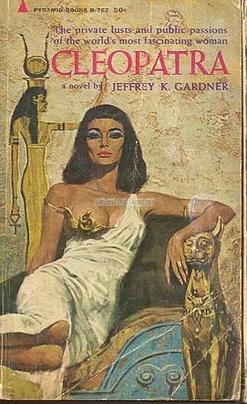This year’s
Nobel Peace Prize was awarded to Liberian peace activist
Leymah Gbowee, Tawakkul Karman of Yemen and
Ellen Sirleaf Johnson for ‘their work on women's rights’. When Liberia’s Johnson Sirleaf was announced as the Nobel Prize winner for 2011, the headlines worldwide noted that Africa’s ‘first’ female president had won the Nobel Peace Prize. Johnson Sirleaf however, is the second
female head of state from Africa. This honor should be rightfully accredited to Ruth Sando Fahnbulleh Perry of Liberia. She was the head of state from 3 September 1996 until 2 August 1997, and succeeded by the notorious
Charles Taylor. Sirleaf Johnson made history as the first ‘elected’ head of state for Liberia. Perry became head of state after
Wilton G. S. Sankawulo stepped down as head of state (chairman) though the Council of State of Liberia. Liberia has the distinction of being the only African country in recent history to have two female heads of state and this is usually ignored in commentary in efforts to build up the image of Sirleaf Johnson as a pioneer in women’s leadership in Africa. It also reinforces the stereotype that African leadership tradition is inherently gendered (women and men had strict roles), and has traditionally excluded African women until western feminism came to ‘free’ African women from their men. This is the narrative that we usually hear from western countries, unfortunately, it is also the narrative that we hear from within the continent. It is important that when people talk about ‘African traditional culture’, they are not talking about ‘African colonial culture’ and passing it off as an African tradition that is timeless and was ‘always there’. We need to distinguish between African traditional culture and African colonial culture because erosion of leadership roles for African women came at the hands of foreign control, and is anything but ‘traditional’.
Africa’s true traditional culture has always been inclusive of women’s leadership. The African continent has had a long history of female leadership ranging from Queen Cleopatra from Egypt to
Queen Nzinga of Angola. In fact, in traditional African culture, prior to colonialism, female leadership in Africa was not an anomaly. We need to remember that traditional African culture has always been more gender neutral then western culture. Gender roles in African culture have also been traditionally more fluid, and this includes female leadership. Prior to colonialism, women in Africa held roles as priests, spiritual leaders, head of clans or ‘tribes’, and other socio-political organizations (since there were no ‘nation-state’ as we know them today). This is not to say that there was no system of patriarchal domination in Africa. The point is, that in terms of gender equality African women had more equality in the areas of land inheritance, property ownership, tracing lineage (matriarchal, matrilineal and matrilocal residence societies existed), and leadership roles. They also had their own systems of checks and balance so that male power was ‘in check’. For example, this includes traditions like postulating (bowing) to both men and women Priests leadership roles or bowing to females that were older. When foreign influence came to the continent, so did foreign ideas of gendered leadership roles. The European and Islamic tradition of inequality that was strongly patriarchal was forced on African traditional cultures so African women saw that now, they could no longer own land, inherit land, become priests, or trace their heritage through the female’s lineage. This means that African women actually lost their rights to be leaders as a result of colonization.
The gender inequalities that African women are experiencing today in terms of leadership are a result of European and Islamic colonization in Africa. They ‘gendered’ roles in leadership and exacerbated existing gender inequalities. Now, through Johnson Sirleaf, we hear of people celebrating the ‘progress’ African women are making in gaining leadership roles denied to us by our men. The steps that women like Johnson-Sirleaf and Perry are taking, are steps towards reclaiming progressive traditional gender roles. African feminism is about regaining rights that were lost. Perry and Sirleaf are stepping on the shoulders of a long tradition of African leadership that is often overlooked or forgotten because it ‘just doesn’t fit in’ to the stereotype of leadership roles for Africa that we like to cling on to. Just as Perry’s position as the ‘first’ head of state in Africa (which was barely 15 years ago) has just been forgotten by popular media and Africans on the continent, one hopes that Sirleaf’s role is also not forgotten in the near future like the countless African women that were leaders on the continent. At this juncture, questions like, ‘Is Liberia ready for a female head of state?’ shouldn’t have been making headlines in countries like Liberia or in any other country. Traditionally speaking, as Africans, we have always been ready for female leadership.

 Image via Wikipedia
Image via Wikipedia Image via Wikipedia
Image via Wikipedia
No comments:
Post a Comment